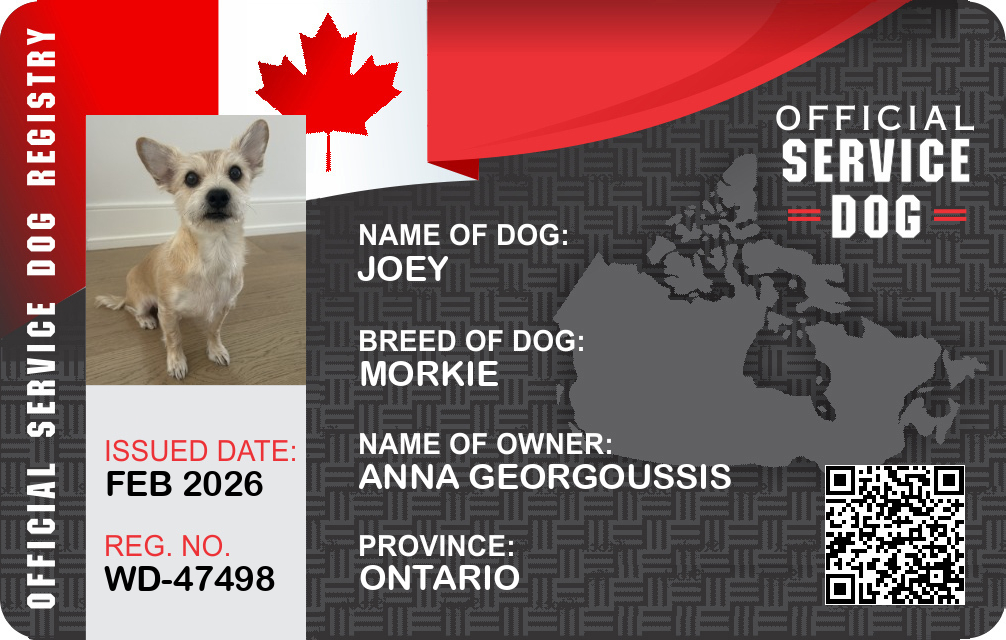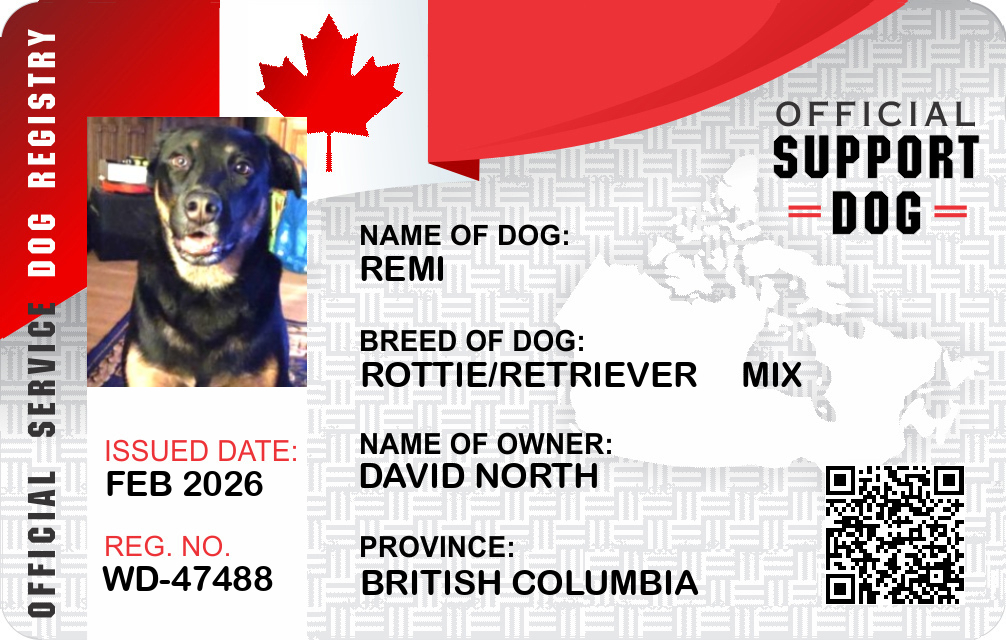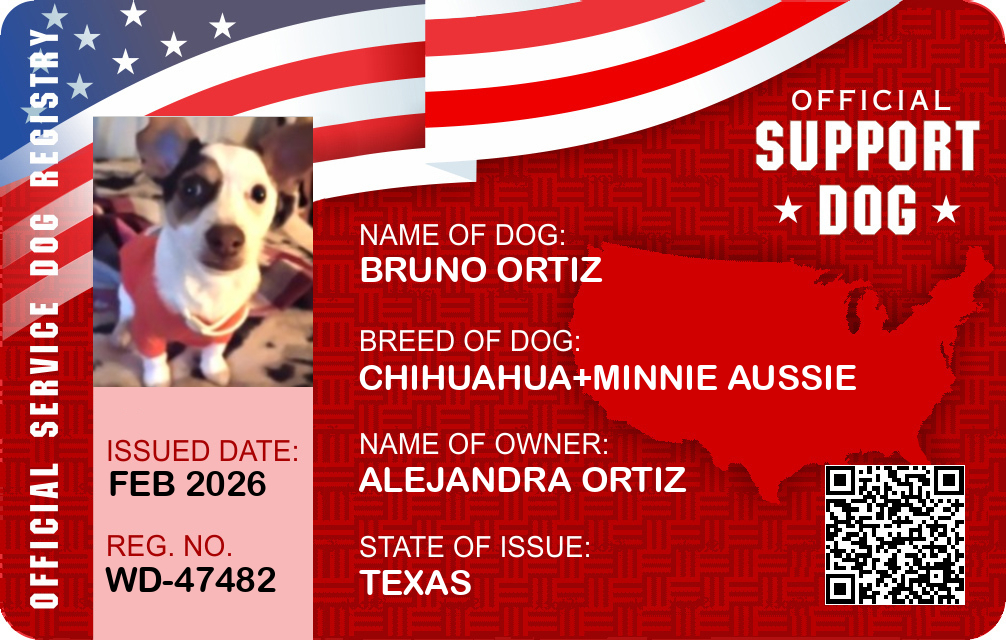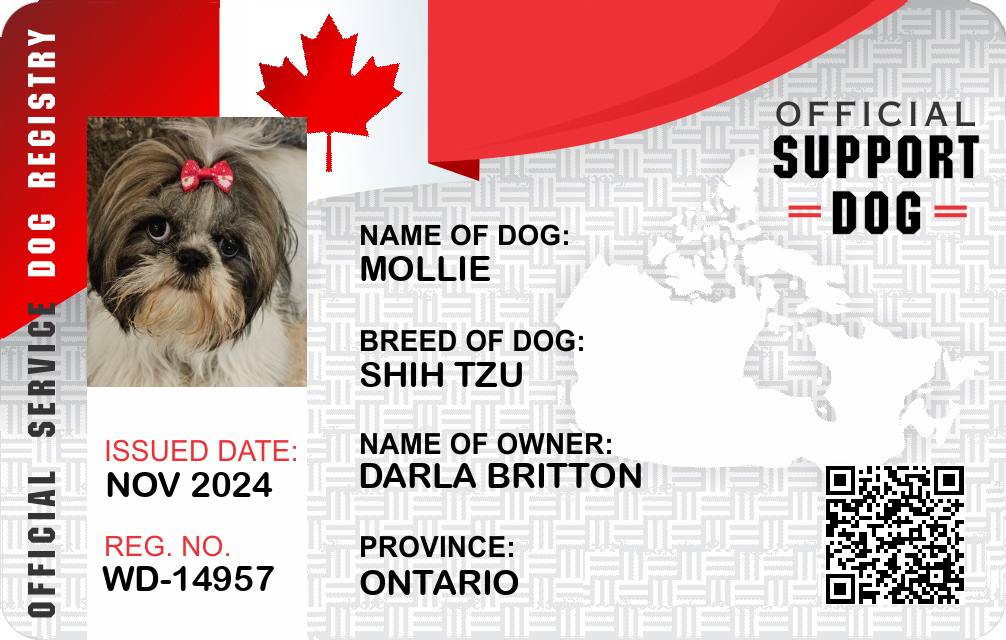North Carolina Emotional Support Animal Laws
Get Your Documents
Example State Cards


Overview of ESA and Legal Definitions in North Carolina
What is an Emotional Support Animal?
An Emotional Support Animal (ESA) is a type of assistance animal specifically designated to provide comfort and support to individuals with mental or emotional disabilities. Unlike service animals, ESA do not perform tasks related to the individual’s disability but instead offer therapeutic benefit through companionship. In North Carolina, as in other states, ESA can be any species of animal, provided their presence alleviates symptoms of anxiety, depression, or emotional stress.
How ESA Differ from Service Animals
Service animals, such as guide dogs for the visually impaired, are trained to perform specific tasks tied to the disability of their owner. In contrast, ESA are not required to have any special training other than being able to provide support through their presence. Under the Americans with Disabilities Act (ADA), only dogs (and in some cases, miniature horses) qualify as service animals. ESA are not considered service animals under this federal law, which influences their rights and access significantly.
Key Federal Laws Affecting ESA (e.g., FHA, ACAA)
The Fair Housing Act (FHA) and the Air Carrier Access Act (ACAA) are the primary federal laws that afford specific protections to ESA. The FHA requires that housing providers make reasonable accommodations for ESA, allowing individuals to keep their support animals despite pet prohibitions. The ACAA, while traditionally significant in the context of air travel, has changed in recent times. As of January 2021, airlines are no longer required to recognize ESA as service animals but may treat them as regular pets regarding travel policies.
State-Specific ESA Laws in North Carolina
Housing Rights and Responsibilities
Under the FHA, ESA are protected in all forms of housing, including rental apartments, condos, and single-family homes, ensuring individuals can live with their support animals. In compliance with these federal guidelines, North Carolina landlords must make reasonable accommodations for individuals with verified ESA needs, even if they have a no-pet policy. However, tenants must provide appropriate ESA documentation upon request. Landlords cannot charge a pet fee for ESA, though they can charge for damages caused by the animal.
Public Access and Accommodation
ESA do not have the same public access rights as service animals. In North Carolina, they are not entitled to enter public areas where pets are normally prohibited, such as restaurants, retail stores, and hotels. Business owners do not have an obligation to allow ESA as they do with service animals. This distinction highlights the importance of understanding the roles and limitations of different types of support animals in public settings.
Transportation and Travel Rules
Following the DOT’s rule change, North Carolina residents travelling by air will find that ESA are not granted the same privileges they previously enjoyed. Airlines may treat ESA as pets, adjusting their policies to include charges and carrier requirements. For other forms of transportation like buses and trains, ESA may need to adhere to normal pet policies as state and federal laws do not provide specific travel rights for ESA besides air travel.
Employment and Workplace Considerations
The employment laws concerning ESA in North Carolina revolve around the broader guidance of the ADA, which does not require employers to recognize ESA. Consequently, having an ESA in the workplace is dependent on the employer’s discretion. However, individuals can discuss their needs and provide documentation to seek accommodations or exceptions as part of negotiating a reasonable adjustment to workplace policies.
Documentation, Requirements, and Processes in North Carolina
ESA Letters and Who Can Issue Them
To validate an ESA, individuals must obtain an ESA letter written by a licensed mental health professional. This letter confirms the need for an emotional support animal as part of a therapeutic treatment plan. North Carolina residents should ensure that the professional providing this letter is familiar with the state’s ESA requirements and recognized by relevant authorities.
Registration, Certifications, and Common Misconceptions
There is no requirement in North Carolina, or federally, to register or certify an ESA. Online services offering registrations or official ESA identification often encourage misconceptions about the legal requirements. It’s crucial to understand that an ESA letter is the only legitimate documentation needed to assert rights under the FHA.
Landlord, Business, and Provider Verification Rules
When a landlord requests verification for an ESA, they may ask for the ESA letter, but they cannot inquire about the specifics of the individual’s condition. Businesses dealing with ESA must understand that they are not under the same obligation to accommodate ESA as housing providers, and verifying documentation is generally limited to the context of rental or housing agreements.
Rights, Limitations, and Legal Risks
Rights ESA Owners Have in North Carolina
- ESA owners in North Carolina are entitled to have their animals in housing situations under the FHA, given they provide valid documentation.
- They are protected from being charged additional pet fees by landlords.
- They have the right to confidentiality regarding their need for an ESA from housing providers.
Limits on ESA Protections and Common Restrictions
- ESA do not have access to public establishments that restrict pets.
- They are not entitled to special consideration on airlines, following the ACAA amendments.
- Employers in North Carolina do not have to accommodate ESA in the workplace unless they choose to do so.
Penalties for Fraud or Misrepresentation
Misrepresenting a pet as an ESA or a service animal in North Carolina can lead to legal penalties, including fines. It is vital for individuals to understanding their rights and responsibilities to avoid potential legal issues or accusations of fraud.
Practical Guidance for ESA Owners in North Carolina
How to Qualify for an ESA Legitimately
To qualify for an ESA, individuals should:
- Consult with a licensed mental health professional.
- Obtain a legitimate ESA letter that outlines the necessity of the animal for emotional support.
How to Talk to Landlords, Airlines, and Employers
- Landlords: Present your ESA letter at lease signing or when requesting accommodation, and politely explain your rights under the FHA.
- Airlines: Inquire about specific pet policies in advance and be prepared to comply with standard pet travel requirements.
- Employers: Engage in discussions to explore potential accommodations, understanding that permission is at the employer’s discretion.
Summary of ESA Laws in North Carolina
Key takeaways for ESA owners in North Carolina:
- Housing Rights: Have the right to live with an ESA in most housing circumstances.
- Public Access: Limited to where pets are permitted; not granted service animal rights.
- Travel Considerations: Subject to general pet rules on airlines; inquire about updated policies.
- Employment: No inherent rights to workplace accommodation; requires negotiation.
- Documentation: An ESA letter is essential; avoid reliance on non-official certifications.
- Legal Risks: Understand limits and potential penalties for misrepresentation.
Get Your Documents
Example State Cards













